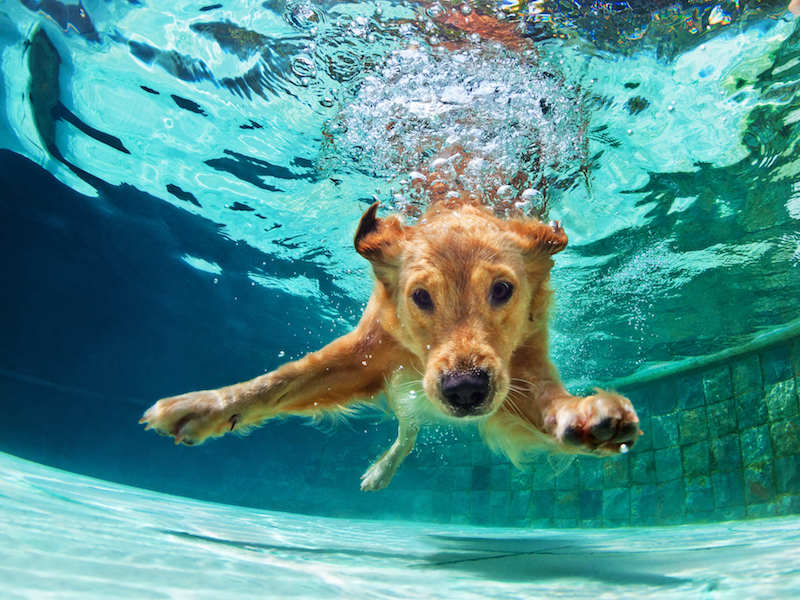
There are a lot of different things that can ruin the delicate technology that makes a hearing aid function the way it does, but few have the impact of water. Hearing aids seem to self-destruct under extreme moisture conditions. Even if you already know that and take care to protect your investment from the shower, pool, or a good face washing, more than likely you are missing the most common cause of water damage in hearing aids: humidity.
Irreversible damage is done by moisture that you can’t see. It’s important to educate yourself about why humidity damages hearing aids.
Let’s Talk About Humidity
Despite the fact that the word humidity is very common, what does it really mean? PBS defines humidity as water molecules in the air. When presented as a percentage, for example, the relative humidity is 40 percent today, it refers to the amount of water vapor in the air compared to what air could hold. When you can feel wetness in the air, that means the relative humidity is high.
Humans cool their body by sweating so that makes us very sensitive to humidity. When you sweat it evaporates into the air, but that doesn’t happen as fast when the humidity level is very high. Electronics are also susceptible to humidity and that is why it has such a detrimental effect on hearing aids.
In General Electronic Devices Have a Hard Time Coping With Humid Weather
Too high or, too low, humidity can affect your hearing aids. When water vapor percentages are high condensation can collect on the delicate elements that make electronic devices work, and low humidity can lead to brittle core materials.
Hearing aids rely heavily on internal electronics to function. An advanced audio processing chip manages noise levels in a newer hearing aid. It’s what is behind elegant functions like:
- Noise reduction
- Anti-feedback
- Targeted listening programs
- Digital sound streaming
High humidity causes moisture to collect inside the hearing aids damaging that chip. It can corrode elements inside the casing and destroy batteries also. It’s the same as dropping your hearing aid in a bathtub of water.
Keeping Humidity Under Control
If you are shopping for hearing aids, look for products that are water-resistant. This feature will give you some protection against humidity and bad weather, but you still can’t go swimming with them in.
If you live in a humid area, think about using a room or house dehumidifier to cut down on water vapor indoors. It’s an investment that will benefit you and your family in numerous ways and protect other electronic devices like that costly TV you got for Christmas. Dehumidifiers reduce the risk of mold, mildew and dust mites, so everyone breathes a little better, too. Although a house or room dehumidifier will help protect your hearing aids, it’s not enough. You will need to take other steps at the same time.
Look for the dehumidifier made for hearing aids. There is one out there for every budget. Drying kits rely on silica gel crystals to protect the electronics. Moisture is eliminated by putting the hearing aids into the dehumidifier for a couple of hours. There are also storage containers that dry hearing aids out each night as you sleep. In a pinch, you could use a bag of uncooked rice to remove moisture.
Don’t forget to leave the battery door open when you store your device. When you expose the battery and inner elements to air by leaving the door open, condensation can evaporate by itself. Don’t just do this in the summer, do it all year round.
Always store your hearing aids in a cool, dry place. Avoid putting them in the glove compartment, in a hot room or on a table in the sun.
Thinking Beyond Humidity
Damage can be caused by other types of wetness. Take precautions to protect them from other kinds of wet such as:
- Don’t touch your hearing aids with hands that are still moist from lotion.
- Leave your hearing aids in a safe place before you go swimming.
- Wear a sweatband when exercising. If you are wearing your hearing aid then it’s a good idea in general. Sweat in your ears can cause problems later.
- Try not to put your hearing aid down on wet surfaces. A glass or coffee cup can leave moisture behind.
Treat your hearing like the valuable asset that it is. Consider how moisture and humidity can impact them and take steps to prevent water damage. If your hearing aid already has water damage make an appointment for service with a hearing aid specialist.